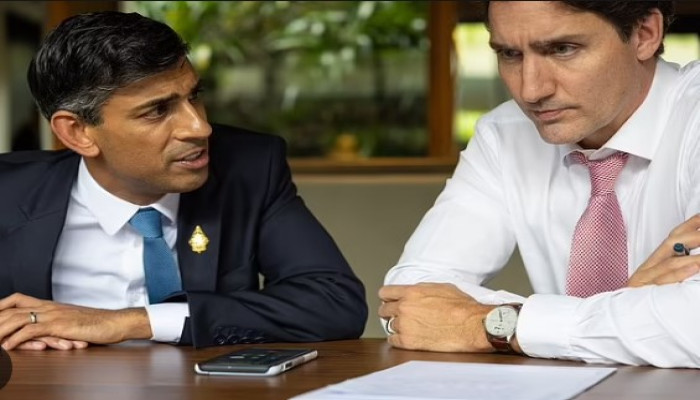Trade negotiations between UK and Canada halted due to beef ban concerns on hormones
- In Reports
- 04:10 PM, Jan 27, 2024
- Myind Staff
The British government has discontinued post-Brexit trade discussions with Canada following a breakdown in talks concerning disagreements on the import and export of beef and cheese.
Over the past two years, the two nations have engaged in negotiations for a new trade deal since Britain's full departure from the European Union. Trade between them has predominantly persisted under the terms of the initial agreement established when Britain was a member of the bloc.
As discussions progressed, Canadian negotiators faced increasing pressure from their beef industry and domestic cheesemakers. The beef industry sought entry into the UK market for its hormone-fed beef.
Simultaneously, cheesemakers raised concerns about the economic repercussions of tariff-free cheese imports from Britain, particularly cheddar. The tariff-free arrangement for British cheese exports concluded at the end of 2023, following the expiration of a time-limited side agreement, resulting in British producers confronting higher duties amounting to 245%.
Canada's trade minister, Mary Ng, stated on Twitter that the Canadian government will only agree to a deal beneficial for workers, farmers, and businesses. Minette Batters, President of the National Farmers' Union of England and Wales, commended the British government's stance, particularly its apparent refusal to permit hormone-linked beef into Britain. Batters emphasized that trade discussions on agricultural products are often the first and last points of negotiation.
Despite the emphasis on pursuing an independent trade policy during the 2016 EU membership referendum, Britain has secured few new trade deals post-Brexit. The perceived benefits are considered modest compared to the trade impediments now in place between Britain and the EU, where pre-Brexit, the UK enjoyed free trade within the bloc.
The UK Conservative government, responsible for the post-Brexit trade deal with the EU, downplayed the breakdown in talks with Canada, highlighting the benefits of an independent trading status. A spokeswoman for Prime Minister Rishi Sunak expressed openness to restarting talks in the future to establish a mutually beneficial trading relationship. However, no specific schedule for further discussions has been outlined.
The breakdown in talks raises concerns about potential higher tariffs on British cars for exports from April, coinciding with the expiration of another temporary tariff-free agreement, similar to the one involving cheese.
The British Chambers of Commerce expressed disappointment, urging the government to assist affected sectors. William Bain, the chamber's trade policy chief, highlighted that for dairy exporters and parts of the manufacturing industry, the loss of key trade preferences leaves them in a more challenging position than before 2020.
The main opposition Labour Party, leading in polls ahead of a potential general election this year, deemed the collapsed talks another "significant failure" by the government in fulfilling its post-Brexit promises.
Image source: BBC







Comments